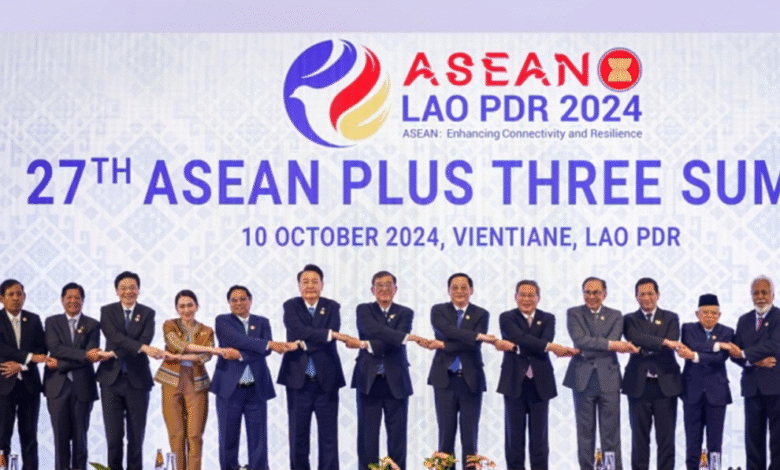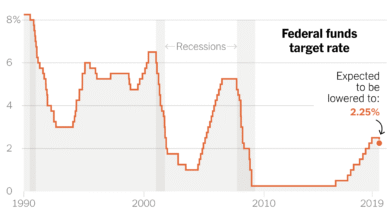ASEAN Protectionism: Unity Against Global Trade Threats

ASEAN protectionism represents a growing concern among Southeast Asian nations as they navigate the complexities of global trade dynamics. In recent discussions, ASEAN, along with its partners in the ASEAN Plus Three—China, Japan, and South Korea—expressed strong opposition to rising trade protectionism, emphasizing its detrimental effects on regional economic growth. This coalition highlights the importance of unity against uncertain trade policies that threaten to fragment economies and disrupt capital flows. By working collaboratively, these nations aim to promote a free and fair multilateral trading system that prioritizes cooperation and adherence to established trade rules. With projections indicating that the combined GDP of ASEAN economies could grow by 4% by 2025, the securing of open trade channels is crucial for their collective prosperity and resilience against external economic shocks.
The rise of trade barriers among Southeast Asian nations, often referred to as protectionist measures, has sparked significant debate within the region. As countries increasingly turn to isolationist policies, the need for cohesive strategies among the ASEAN bloc and its Plus Three partners takes center stage. The push for enhanced collaboration aims to mitigate the impacts of trade wars and foster collective economic resilience. By safeguarding a unified front against restrictive trade practices, these nations seek to usher in an era of regional economic integration that promotes growth and sustainability. Furthermore, the commitment to uphold a transparent and inclusive trading atmosphere is more critical than ever in cultivating stability in the face of global economic uncertainty.
Understanding ASEAN Protectionism in a Global Context
In recent years, ASEAN has become increasingly aware of the challenges posed by global protectionism, particularly from major economies like the United States. The rise of trade barriers and tariffs, as highlighted by ongoing tensions between the U.S. and various trading partners, has prompted ASEAN members to prioritize regional unity. The statement released by ASEAN Plus Three, which includes China, Japan, and South Korea, underscores this collaborative effort to combat protectionist measures that threaten the integrity of the global trading system. By fostering unity among its member states, ASEAN aims to create a resilient economic environment that can withstand external shocks and uncertainties.
As ASEAN economies project robust growth—estimated at around 4% GDP growth by 2025—the region acknowledges that it must proactively counteract the adverse effects of trade protectionism. This includes measures to bolster intra-regional trade and investment flows, thereby enhancing economic stability within ASEAN itself. The notion of unity expressed by ASEAN Plus Three reflects a strategic approach to mitigating the risks associated with global economic fragmentation, ensuring that regional collaboration remains at the forefront of their economic agenda.
ASEAN Plus Three: A Collective Response to Trade Protectionism
The ASEAN Plus Three framework serves as a vital platform for fostering cooperation among Southeast Asian nations and their significant economic partners, namely China, Japan, and South Korea. In light of increasing trade protectionism, this coalition emphasizes collective action against such policies that threaten economic growth. The Finance Ministers and Central Bank Governors’ Meeting in Milan brought together these nations to deliberate on strategies that would enhance their economic interdependence. By reinforcing their commitment to a rules-based multilateral trading system, ASEAN Plus Three demonstrates its resolve to navigate the complexities of international trade politics.
The unity showcased by ASEAN Plus Three not only reflects a response to external pressures but also serves as a catalyst for fostering regional economic growth. With trade protectionism causing shifts in global supply chains and investment patterns, this collaborative approach allows member nations to explore new opportunities while reducing reliance on any single economy. Through initiatives aimed at improving trade mechanisms and reducing tariffs among member states, ASEAN Plus Three is working to ensure that regional economic growth is resilient, dynamic, and sustainable even in the face of global uncertainties.
The Role of Multilateral Trading Systems amidst ASEAN Challenges
As ASEAN seeks to navigate the challenges posed by rising protectionism, it is essential to stress the importance of a robust multilateral trading system. The commitment to a ‘free, fair, open, and inclusive’ trade framework as emphasized in their statements illustrates ASEAN’s understanding of the need for established trading rules. Organizations like the World Trade Organization (WTO) play a crucial role in providing the necessary structure for international trade, ensuring fairness and equity among participating nations. For ASEAN, adhering to these principles is vital in mitigating the dangers of economic fragmentation resulting from unilateral trade policies.
Furthermore, the multilateral trading system is integral to supporting ASEAN’s broader economic objectives, particularly in the context of regional growth and development. By engaging with and strengthening ties within the ASEAN Plus Three framework, member nations can advocate for the maintenance and enhancement of global trade regulations that favor open exchanges. This cooperation is particularly important as countries like China, Japan, and South Korea face similar challenges. Their joint efforts not only bolster ASEAN’s position in the global economic landscape but also pave the way for a more stable environment conducive to long-term growth.
Promoting Intra-Regional Trade Among ASEAN Economies
ASEAN’s strategy to promote intra-regional trade is vital in countering the adverse effects of global protectionism. In light of increasing tariffs and trade barriers from external nations, there is a compelling need for member states to deepen their economic cooperation. By enhancing intra-regional trade, ASEAN aims to create a more integrated market that not only boosts economic resilience but also strengthens member nations’ bargaining power in global negotiations. The emphasis on increasing trade among ASEAN countries reaffirms the organization’s commitment to maintaining stability in an unpredictable trade landscape.
To facilitate this deeper economic engagement, ASEAN is exploring various initiatives, such as reducing transaction costs and improving trade logistics and infrastructures. This endeavor includes establishing frameworks that encourage seamless trade within the region, thereby allowing smaller ASEAN economies to benefit from a more interconnected market. Additionally, ASEAN’s efforts to reduce reliance on external economies, including the U.S., encourage member nations to support each other economically, ultimately leading to a stronger and more competitive regional bloc.
Navigating Economic Fragmentation Through Cooperation
As economic fragmentation increasingly threatens the stability of global trade, cooperation among ASEAN member nations becomes paramount. The collective stance against protectionism taken by ASEAN Plus Three highlights the significance of regional partnerships in mitigating the impacts of unpredictable trade policies. By working together, ASEAN members can counteract the negative consequences of tariffs and restrictions imposed by larger economies, ensuring that they continue to thrive in a competitive global landscape. This collaborative spirit is essential for fostering a resilient economic environment that prioritizes shared growth and mutual benefits.
In this era of heightened economic uncertainty, fostering interdependence within ASEAN has emerged as both a necessity and an opportunity. By prioritizing regional cooperation, member states can create a buffer against potential external shocks while simultaneously exploring fresh avenues for growth. This unity not only promotes economic stability but also establishes ASEAN as a formidable player on the global stage, capable of influencing trade dynamics while championing a more equitable multilateral trading system.
Challenges and Opportunities in Regional Economic Growth
As ASEAN grapples with the realities of global trade protectionism, it must also navigate internal challenges that may hinder regional economic growth. The diverse economic landscapes of member states present both opportunities and obstacles in promoting collective development. As such, ASEAN is focused on creating frameworks that utilize the unique strengths of each member, fostering a collaborative environment where disparities can be addressed, and economic integration can flourish. Efforts to harmonize regulations and streamline trade processes are essential in addressing these challenges effectively.
Simultaneously, ASEAN’s commitment to regional economic growth is reinforced by its increasing collaboration with external partners. The presence of powerhouse economies like China, Japan, and South Korea within the ASEAN Plus Three framework allows for enhanced investment opportunities and trade relations. By finding common ground in their development goals, ASEAN and its partners can leverage their collective strengths to not only address protectionist threats but also to devise innovative solutions that promote long-term prosperity.
Building Strong Trade Relationships for a Sustainable Future
A sustainable economic future for ASEAN hinges on its ability to build resilient trade relationships amidst growing protectionism. The ASEAN Plus Three coalition demonstrates how collaborative efforts can pave the way for developing strong interdependencies that benefit all member states. By fostering relationships based on mutual respect and shared objectives, ASEAN countries can better withstand external pressures and cultivate an environment conducive to sustainable economic practices. This spiritual of cooperation is vital in crafting solutions that prioritize both economic sustainability and social welfare.
Moreover, the establishment of deeper trade ties, coupled with investment in sustainable practices, is critical for long-term growth. This includes leveraging regional strengths to innovate in technology and green initiatives, ensuring that ASEAN remains competitive in the global marketplace. As ASEAN positions itself as a leader in sustainable trade, it can not only influence regional economic policies but also advocate for a multilateral trading system that prioritizes sustainability at its core, solidifying its role as a forward-thinking economic partnership.
Counteracting External Pressures: ASEAN’s Strategic Approaches
In response to rising global trade protectionism, ASEAN has adopted strategic approaches aimed at counteracting external pressures while ensuring regional stability. The organization’s emphasis on a cohesive strategy enables member states to present a unified front against challenges posed by unilateral policies of major trading partners, including the U.S. By fostering economic resilience through intra-regional integration, ASEAN can mitigate the potential negative effects of external economic shocks and market fluctuations.
To complement this strategic endeavor, ASEAN’s focus on enhancing its economic infrastructure underscores its commitment to creating an environment conducive to trade and investment. This investment in infrastructure serves not only to streamline processes but also entails enhancing connectivity between member states, ultimately fortifying ASEAN’s position in global markets. By addressing both internal and external challenges through strategic initiatives, ASEAN is well-positioned to navigate the complexities of international trade while promoting sustainable economic growth.
Future Prospects for ASEAN Amidst Global Economic Changes
Looking ahead, ASEAN’s future prospects in light of global economic changes are promising yet challenging. As protectionism continues to reshape the global trade landscape, ASEAN’s commitment to unity and collaboration becomes increasingly vital. The organization’s proactive approach in fortifying relationships with key partners, particularly within the ASEAN Plus Three framework, enables it to adapt to changing economic dynamics while maintaining a focus on regional economic growth. The collective efforts of ASEAN member states will significantly influence how the region navigates future trade challenges.
Furthermore, embracing digital transformation and innovation will be instrumental for ASEAN in realizing its potential for sustainable growth. By investing in technology-driven solutions and fostering a culture of innovation, ASEAN can enhance productivity while addressing the pressing challenges of the digital age. This strategic alignment not only positions ASEAN to thrive amidst uncertainty but also underscores its aspiration to be a cornerstone of a dynamic regional economy that champions equitable trade practices on the global stage.
Frequently Asked Questions
What is the impact of ASEAN protectionism on regional economic growth?
ASEAN protectionism, characterized by the collective resistance against unilateral trade barriers, plays a crucial role in fostering regional economic growth. By promoting intra-regional trade among ASEAN Plus Three, which includes China, Japan, and South Korea, these nations can mitigate the negative effects of external trade protectionism, ensuring a more stable economic environment for investment and capital flows.
How does ASEAN Plus Three address trade protectionism?
ASEAN Plus Three, comprising ASEAN countries, China, Japan, and South Korea, actively addresses trade protectionism through collaborative statements and promises of regional unity. They emphasize the importance of adhering to a multilateral trading system, ensuring that trade remains free, fair, and transparent in light of rising global protectionist measures.
What role does the multilateral trading system play in combating ASEAN protectionism?
The multilateral trading system is vital in combating ASEAN protectionism as it provides a structured framework for trade that promotes fairness and inclusivity. ASEAN nations stress the importance of a rules-based system empowered by the World Trade Organization (WTO), which helps to counteract unilateral protectionist policies that disrupt regional and global trade.
Why is regional cooperation emphasized by ASEAN Plus Three in the context of trade protectionism?
Regional cooperation is emphasized by ASEAN Plus Three as a strategic response to the threats posed by trade protectionism. By uniting, these nations can enhance their collective bargaining power, bolster intra-regional trade, and work together to navigate unpredictable external economic conditions, thereby promoting stability and growth within the region.
How does ASEAN protectionism affect its relationship with global powers like the U.S.?
ASEAN protectionism affects its relationship with global powers like the U.S. by highlighting the need for the region to reduce reliance on unilateral sanctions and the U.S. dollar for trade. This shift represents an effort to create a balanced economic environment, promoting autonomy and stability, while still engaging with major global economies.
What measures are ASEAN countries taking to counteract trade protectionism?
ASEAN countries are implementing a variety of measures to counteract trade protectionism, such as promoting intra-regional trade agreements and diversifying their economic partnerships. They are also taking steps to reduce dependence on the U.S. dollar in trade settlements to mitigate risks from global economic fluctuations and unilateral pressures.
| Key Points | Details |
|---|---|
| Collective Criticism | ASEAN, China, Japan, and South Korea criticized the rise of protectionism and emphasized regional unity. |
| ASEAN Plus Three Forum | The statement was made during the Finance Ministers’ and Central Bank Governors’ Meeting in Milan, Italy. |
| Economic Growth Projection | ASEAN economies are projected to grow by approximately 4% in GDP by 2025. |
| Trade Challenges | The region faces ‘heightened externalities’ including an unpredictable trade market forecast. |
| Impact of Protectionism | Escalating protectionism is seen as a burden on global trade, causing economic fragmentation. |
| Pledge for Cooperation | ASEAN Plus Three commits to uphold regional unity and enhance intra-regional trade. |
| Commitment to Trading Rules | ASEAN is committed to a non-discriminatory, rules-based multilateral trading system. |
| Reducing US Dollar Dependence | Since 2023, ASEAN has taken measures to lessen reliance on the U.S. dollar for trade. |
Summary
ASEAN protectionism is a critical issue that highlights the resistance from ASEAN, China, Japan, and South Korea against the rising tide of protectionist measures introduced by the U.S. This collective stance emphasizes the importance of regional cooperation in addressing the economic challenges posed by such policies. By uniting to promote free and fair trade practices, ASEAN members are not only safeguarding their economic growth but also enhancing their geopolitical stability in an increasingly fragmented global market.




